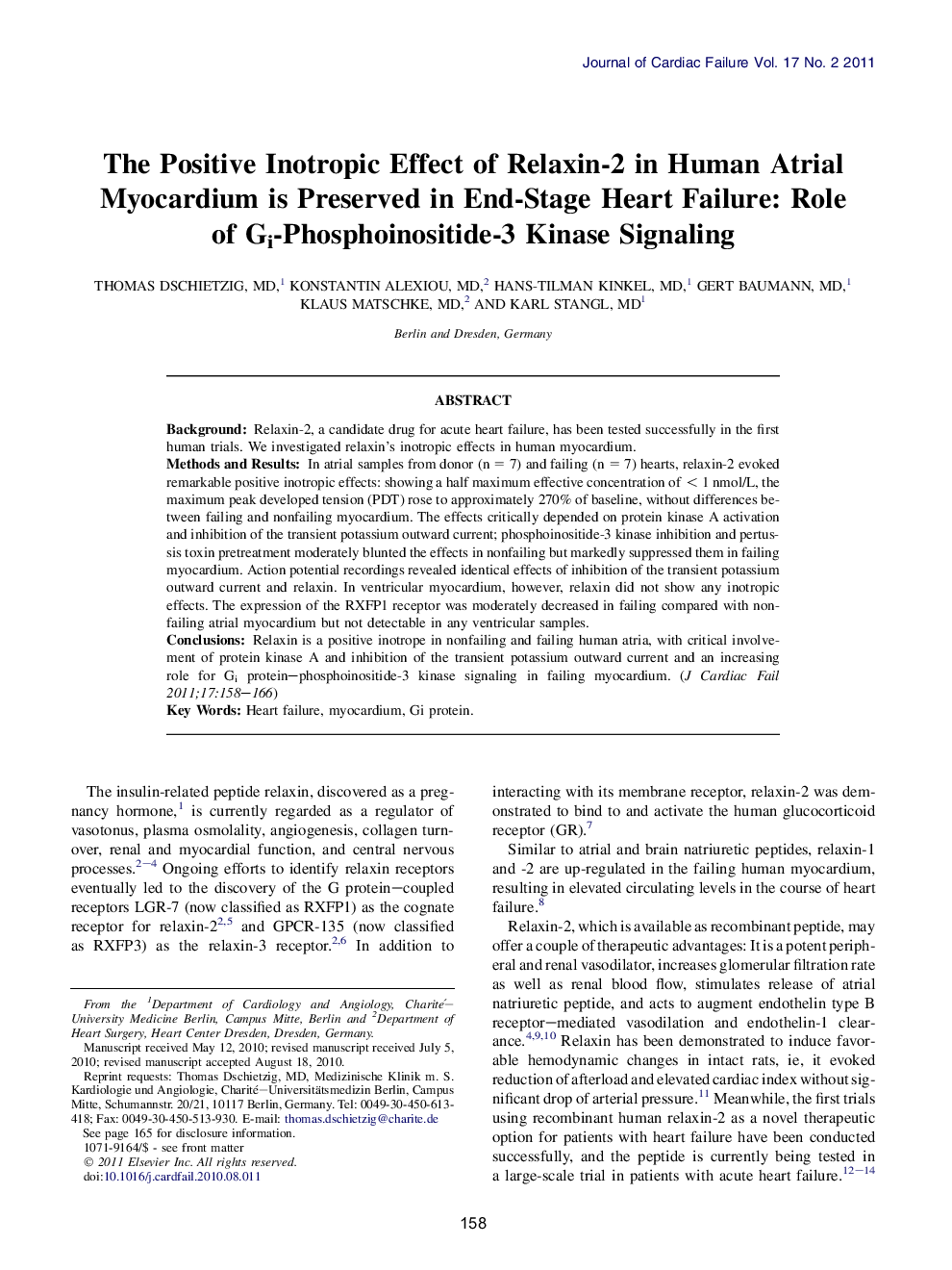| کد مقاله | کد نشریه | سال انتشار | مقاله انگلیسی | نسخه تمام متن |
|---|---|---|---|---|
| 2960794 | 1178375 | 2011 | 9 صفحه PDF | دانلود رایگان |

BackgroundRelaxin-2, a candidate drug for acute heart failure, has been tested successfully in the first human trials. We investigated relaxin’s inotropic effects in human myocardium.Methods and ResultsIn atrial samples from donor (n = 7) and failing (n = 7) hearts, relaxin-2 evoked remarkable positive inotropic effects: showing a half maximum effective concentration of < 1 nmol/L, the maximum peak developed tension (PDT) rose to approximately 270% of baseline, without differences between failing and nonfailing myocardium. The effects critically depended on protein kinase A activation and inhibition of the transient potassium outward current; phosphoinositide-3 kinase inhibition and pertussis toxin pretreatment moderately blunted the effects in nonfailing but markedly suppressed them in failing myocardium. Action potential recordings revealed identical effects of inhibition of the transient potassium outward current and relaxin. In ventricular myocardium, however, relaxin did not show any inotropic effects. The expression of the RXFP1 receptor was moderately decreased in failing compared with nonfailing atrial myocardium but not detectable in any ventricular samples.ConclusionsRelaxin is a positive inotrope in nonfailing and failing human atria, with critical involvement of protein kinase A and inhibition of the transient potassium outward current and an increasing role for Gi protein–phosphoinositide-3 kinase signaling in failing myocardium.
Journal: Journal of Cardiac Failure - Volume 17, Issue 2, February 2011, Pages 158–166